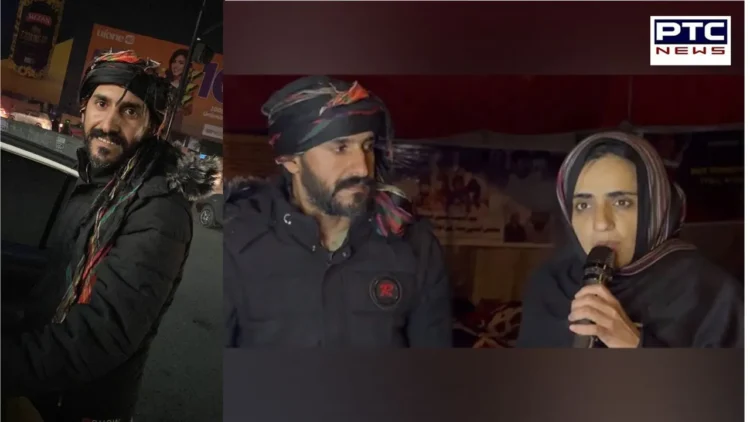In the midst of persistent protests by Baloch activists decrying ‘enforced disappearances’ and alleged extrajudicial killings by Pakistani forces, Zaheer Baloch, a PhD student, has been released by Islamabad police after a five-day disappearance, as reported by The Balochistan Post on Thursday (December 28).
Zaheer Baloch was initially apprehended during a protest against Islamabad police’s refusal to permit participants in the “Long March Against Baloch Genocide” to enter the capital. Despite assertions of ignorance regarding his whereabouts, authorities later disclosed in the Islamabad High Court that he had been held in Adiala jail.
Celebrating his release, the Baloch Yakjehti Committee, on social media, acknowledged Zaheer Baloch’s return while highlighting that 34 other students remain missing.
Dr Mahrang Baloch, a political leader orchestrating the ongoing protest for the safe release of Baloch missing persons and an end to enforced disappearances and extrajudicial killings in Balochistan, addressed the gathering in Islamabad alongside Zaheer Baloch.
Expressing dissatisfaction with the authorities, she stated, “We launched this movement against enforced disappearances and extrajudicial killings in Balochistan. Some elements are spreading a false narrative that we don’t want to negotiate with the authorities. That is untrue. We are ready for negotiation, but we will not be defrauded this time.”
Dr Mahrang emphasised that the movement represents the people of Balochistan, asserting an increasing daily participation. In response, the police and related authorities reportedly employed violence and deception, including seizing their loudspeakers during the night.
Zaheer Baloch, recounting his time in jail, described inhumane conditions, citing overcrowded cells where detainees could neither stand, sit, nor lie down. He alleged mistreatment by the investigative officer, recounting a denial of legal representation and communication with lawyers or family members.
The protests leading to Zaheer Baloch’s disappearance were triggered by the federal government and Islamabad Police’s obstruction of participants in the “Long March Against Baloch Genocide.” The police response involved tear gas, batons, and water cannons, leading to the arrest of hundreds of protesters.
The harsh crackdown in Islamabad has drawn condemnation from national and international activists and human rights organisations. Protests have proliferated in various cities, with the Baloch Yakjehti Committee organising anti-government protests in Karachi, Lahore, and Bahawalpur.
As tensions escalate, Mahrang Baloch issued a stern warning, demanding the release of all detainees, stating, “Otherwise, we will be forced to take hard steps. Our demand is to release all detainees, and this is our clear last warning.”
The Baloch protest march, initiated in Turbat on December 6, transformed into a sit-in outside the Islamabad National Press Club following the crackdown, reflecting the determined resolve of the Baloch activists.
Demanding the release of all detainees, Mahrang Baloch warned of potential repercussions if demands weren’t met. The protests, initially against an alleged extrajudicial killing, escalated into a sit-in outside the Islamabad National Press Club to protest the crackdown by authorities.
(With inputs from ANI)




















Comments